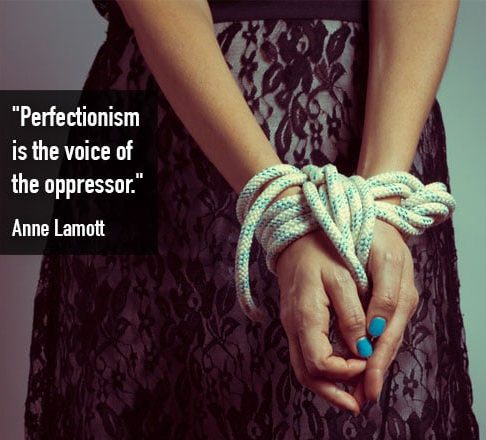Is the Voice of the Oppressor” Hindering Your Productivity?
I remember studying Camus’s The Plague in high school, and the discussion in class still lingers in my ear.
Joseph Grand, a clerk in the municipal government, confesses to Dr. Bernard Rieux, the narrator of the story, that he is writing a “book or something of the sort.” When Rieux asks Grand if he is “getting good results,” Grand answers, “Well, yes, I think I’m making headway.” Rieux then asks, “Have you much more to do?” to which Grand responds, “That’s not the point . . . I can assure you that’s not the point.”
What does Grand want? He wants his manuscript to be “flawless.”
Anne Lamott says in her wonderful book Bird by Bird about aspiring writers:
“They kind of want to write, but they really want to be published.” However, she notes, “Publication is not all that it is cracked up to be. But writing is.”
In the quest of a “flawless” manuscript, Grand encounters troubles. “Evenings, whole weeks, spent on one word, just think! Sometimes on a mere conjunction! I’d like you to understand, Doctor, I grant you it’s easy enough to choose between a ‘but’ and an ‘and.’ It’s a bit more difficult to decide between ‘and’ and ‘then.’ But definitely the hardest thing may be to know whether one should put an ‘and’ or leave it out.”
To this, the unflappable Dr. Rieux responds, “Yes, I see your point.”
As the story unfolds, we learn that Grand aspires to write the perfect sentence. And it becomes apparent to the reader that the “book or something of the sort” consists of exactly this single sentence:
“One fine morning in the month of May an elegant young horsewoman might have been seen riding a handsome sorrel mare along the flowery avenues of the Bois de Bologne.”
He works on this sentence throughout the story. Needless to say, he doesn’t get very far. And his book never gets written.
Perfectionism: “The Voice of the Oppressor”
Lamott also says, “Perfectionism is the voice of the oppressor. . . . It will keep you cramped and insane your whole life, and it is the main obstacle between you and a shitty first draft. . . . [It] will ruin your writing, blocking inventiveness and playfulness and life force. . . . Perfectionism means that you try desperately not to leave so much mess to clean up. But clutter and mess show us that life is being lived.”
True. Perfectionism oppresses. But let’s take another look at why perfectionism is a bad thing.
Perfectionism Is Bad for Your Health
Perfectionism takes its toll on our health, mentally and physically. Chronic worry and discouragement not only kills our joy of living but also leads to an exhausted state. It infects those around us too, putting a strain on relationships. The constant stress caused by perfectionism eventually leads to problems such as weakened immunity, digestive problems, and insomnia.
Perfectionism exaggerates the importance or value of what you’re trying to achieve. Seriously, you’re only attempting to write a book, not save the world. If you don’t write the perfect book, thousands aren’t going to die. The stress of putting too much importance on your tasks, whatever they may be, can make you sick over the long run.
Perfectionism seeps into the psyche and creates a pervasive personality type. It reduces playfulness and the assimilation of knowledge, because if you’re always focused on your own performance and on defending yourself, you can’t focus on learning a task.
If we’re in the habit of expecting perfection from ourselves, our creativity and innovation are at risk of being squelched. We sabotage our ability to write our best book. And our energy is drained in the process.
Perfectionism in the Guise of Procrastination
Is it possible your obsession with perfectionism is actually an excuse to procrastinate? Maybe fear is at the heart of your perfectionism.
If we fear we will fail and, as a result, face rejection, jeering, and humiliation, procrastination is a safe course of action. But we don’t want to admit we’re procrastinating, so we mask it in the guise of perfectionism.
I asked my readers what keeps them from starting or finishing their manuscript, and many told me they are afraid of failing, that there are hounded by perfectionism. They know it’s unreasonable to expect perfection in the material they write, yet they can’t get past the belief their book has to be perfect before they can show it to anyone or release it into the world of readers.
Perfectionism can be difficult to identify. How do you know if you are truly a perfectionist?
Well, perfectionists tend to focus on product to the exclusion of the process. Instead of enjoying the act of writing, their thoughts are fixated on the end result. Instead of accepting that a draft may start off awful and go through numerous iterations, a perfectionist will self-sabotage with the knowledge that whatever he writes won’t be good enough.
Good enough for whom? It doesn’t matter. It won’t be good enough for someone.
Here are some characteristics of a perfectionist belief system:
- You are not okay as you are.
- No matter what you achieve, the feelings of satisfaction are temporary. There is always more to do, be, accomplish.
- Things are either black or white. Things in your life are either right or wrong, good or bad, success or failure.
- You believe that if you make everything perfect on the outside, you will be at peace on the inside.
- If you continually achieve and acquire, you will be successful and happy.
- When things go wrong or you do not achieve at a certain level, you believe you have failed.
- Effort and intention aren’t satisfying in themselves. If the results of your efforts aren’t successful, you have no joy.
- You are competitive about almost everything.
- You feel judgmental of people who fall short of perfection.
- You imagine others admire and value you only for your high level of achievement and production.
Perfect Is Never Good Enough
Perfectionists are often high achievers, and even when they achieve, those feelings of satisfaction are temporary because they believe there is always more to do, be, or accomplish.
Perfectionists are their own harshest critics, frequently berating themselves over any small thing that’s just not right. They tend to do things in fits and starts, but end up discouraged and exhausted.
I’ve had a fascination for years with those who attempt to crest Mt. Everest. Honestly, these people, for the most part, are the most obsessed and crazy individuals. They are perfectionists who have to climb that mountain not “because it’s there” but because they have to prove to themselves they are worthy or have value.
I’ve watched footage of many who failed to reach the top. They collapse in utter failure. Their lives are worthless. They may as well have died in the attempt, they seem to think. Making it up to fifty feet from the top is wholly unacceptable. There is no sense of accomplishment or victory or pride. It’s failure, plain and simple.
It’s not just a case of being competitive when these climbers have to go back and do it again and again. Sure, some may be driven competitively to make the peak more times than anyone else. Or be the first ___ (you fill in the blank) to ever climb Everest.
This unreasonable striving for perfection stems from a sense of self-worth that hinges on the expectations or approval of others. It is often referred to as “the highest form of self-abuse” because perfection doesn’t actually exist.
Are you striving for perfection because anything less means you “are less”? Something to consider.
The sooner you come to grips with the truth that you aren’t your art—your self-worth isn’t connected in any way with what you create and how that creation is received by others—the sooner you’ll break those chains of perfectionism.
I know, it’s hard. Really hard.
Bad reviews can make us feel worthless. But we have to learn to separate truth from fiction. Instead of wallowing in self-pity and doubt when we receive valid criticism (and I’m emphasizing valid because, well, writers can get a lot of dumb criticism that isn’t helpful or valid at all), we need to step back with a professional attitude and see what ways we might improve our craft so our next attempt will be more successful and favorably received by writers.
Thick Skin Needed
We writers need to develop a thick skin. Not so thick that we stubbornly refuse to take helpful criticism or instruction. But thick enough to throw off the slings and arrows of unhelpful criticism.
Just today I got an email from a reader who gave me a list of things I should have done differently in my latest novel. Things that were character choices, such as insisting a character should have moved an item from one hand to another before offering to shake hands. Or how she should have put down her violin before hugging her arms around herself (on the damp, cold grass late at night? I wondered).
This reader suggested I had a lot wrong syntax and mistaken words, but those were true to my characters’ education, background, and vocation (cowboys in the 1870s really did speak differently than we do in the US in the year 2017).
All this to say: if you’re a writer who puts her work out for the world to read, you’re going to get bad reviews, complaints, criticism, and—as this email demonstrates—readers who feel you should have written your story differently.
I recall how my mother, sole writer for the TV soap The Doctors (back in the ’60s), used to get scathing, hateful mail from fans when she killed a character off or when some character broke up with another or cheated on her. She’d laugh and shrug and tell me “You can’t please everyone.”
Good criticism should be welcomed, though. I appreciate it when a reader points out some glaring mistake I made in one of my books. I thank the person and make the correction pronto. But writers need to distinguish between helpful criticism and personal taste.
You can’t please all the people all the time. If you have to get that novel just perfect so you’ll never get a bad review, you need to develop a thicker skin. You need to stop procrastinating because of fear of failure.
Do you see yourself in some of those perfectionist beliefs? What have you learned here that will help you break through the tendency or habit to procrastinate due to perfectionism?












Well I have to say since one man named Sherman of Green………publishing said the following I have not written since. I sent up the manuscript the following in 2015 was the reply.
“What you have written is a 1,000 page novel,cut it down, go away and write a short story of a Detective who falls in love with his victim”.
This is the last bloody thing I wanted to turn my story into, which in fact focuses on Islams impact on Sweden and just how many women are found murdered and raped, including the Forensic Investigators wife simply because they Jewish. One of the killers is a brutal Melatto convert,and commits matricide. The political & state of the public services come into play. Well anyway I’ve just left the book alone. I even applied my artistic ability to designing the cover. Perfection didn’t bother me but telling me to write a bodice ripper was an insult – I can write bodice rippers with ease but I can tell you I won’t write again.
I’m sorry that happened. But that’s just the comment of one insensitive person, and if we let insensitive people influence all we do in life, we will be living for them, not ourselves. If you love to write, you should write and find joy in it. All writers have to put up with criticism, bad and good/helpful.
Well I don’t believe it, just airing my fear and the demand for perfectionism on the part of Sherman – I actually went back to work this afternoon. I can’t believe it, and what I found was good, thanks for this website.
i lived in the hell of perfectionism for nearly 40 years. it is a cruel, unrelenting, and unforgiving task master, and it took a few years to “escape.”
my banner now is excellence. did I do my best? where can i improve? am i happy with my work?
and guess what? i am 1000X more productive than i ever thought possible!
BONUS: i like myself now, too!
Robin, what an uplifting message. Thank you for posting your comments. Enjoy your day.
Fabulous post and so true! Have you considered writing a book just on this topic – the Oppression of Perfectionism?
Thank you for a great post. A trucking company based in the city where I live emblazoned all of its trucks in gold lettering over a black background: “Destination: Excellence.” I smile each time I see one of their vehicles. Excellence means not settling for anything less than my best. Perfectionism means my best isn’t good enough, that I’m not good enough. I have lived with perfectionism, as well as anxiety and depression, since my adolescent years. I’m working on several writing projects, and I fret over how to start or how to proceed. When I do settle down and write, I am amazed at the exhilaration I feel and the results of my work. I am learning the power of the words “excellent,” “very good,” and “I’ve done my best.”
Thanks for sharing that! It’s harder for some than for others, especially if we’ve been raised to believe we’ll fail at everything. I was given mixed messages: You are better than everyone else (smarter, etc.) and can do anything in life. But I was also criticized for every failure and shortcoming by my mother in a mean passive-aggressive way to induce shame and guilt. Yes, I was pretty screwed up. And I cried a lot over the years at my failure to become a successful author. It took a long time to separate my self-worth from my creative products. Now, I just love the stories I tell, and it’s great when readers love them too, but I hardly blink at a bad review. If I’ve done my very best to tell the story in the best way possible, I can feel proud of the accomplishment, and that’s what makes me happy.
Great article. I love the title. I am always my worst critic. A friend of mine once quoted something she’d read. I thought it was good and then realized it was something I had written. Wow! I had to admit my writing wasn’t too bad. Thankfully, I have a writing group that gives me excellent critiques–some good, some not so good. I’ve learned to keep an open mind and weigh their suggestions. They’ve kept me on my toes and moving forward rather than stopping to evaluate my creativity. That oppressor is always on my shoulder, but most of the time I can ignore her. Thanks for a thorough interpretation of these mind swamps and the great examples.
Glad this post helps. We all have the cartoon devil on our shoulder! I find it best to make friends with it, and set the terms!
Perfectionism is one of my bugaboos, too. Thank your writing about it with such clarity — consciousness is the first step!
I was thinking “everyone has an imperfection” and then I just happened to read this in a link my wife had sent me. It’s interesting how these things work together sometimes.
Everyone Has an Imperfection
I have a symbol for ONE, it resembles the eternity symbol, it flows back into itself and is the same when you flip it over. One day a realized that this also works in 3D so I started making these little ONE’s out of copper wire. I usually get frustrated when I’m making them because no ONE is ever perfect. As I was making the wire ONE today the “word” that came into my mind was “every ONE has an imperfection.” And that seems to be true of God and with Him being ONE with us. Everyone has an imperfection, a small mark or something somewhere and that is like the signature of the Creator, or the creator if we’re the ones making the creation. If whatever it may be is actually “perfect” and completely flawless in form then it’s probably synthetic, which then makes fairly worthless as any form of art or literature. If perfect form is what actually spoke to our souls and made us ponder then we could just have machines make our art, create computer programs to write flawless literature, perfect poetry and make our music exactly the same every time. So in the natural order of things perfection is actually imperfection, and imperfection is perfection. Because the Creator is an artist and not a computer, and so are we. And that’s why everyone has an imperfection!
This article has such great advice. I’m learning to set my perfection aside when I write. I recently finished my MFA and when I no longer had my mentors to guide me and tell me what I was doing right or what I could improve upon, I floundered for months, mainly because I set goals that were too lofty and put too much emphasis on the end result instead of on the process of writing. I finally backed off, set realistic goals (that no longer involved word count), and began focusing on my characters and my story. My love for writing is back! Sure, I know that I’ll come across stumbling blocks (I still have a few major plot holes that I have to fill), but I’ve regained my confidence as a writer because I’m focusing on writing itself instead of on perfection.
Thanks for sharing that! And when you’re on a roll to write, get writing!
So IMPORTANT never to let go of your mentors!
So, so true!! I still stay in touch with one of my mentors. Ann is amazing! 🙂